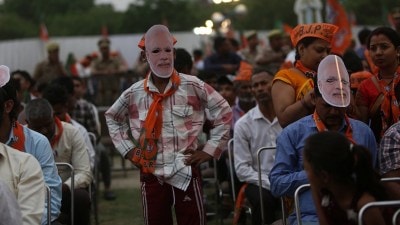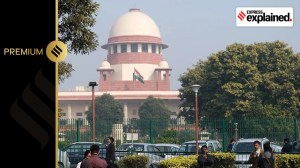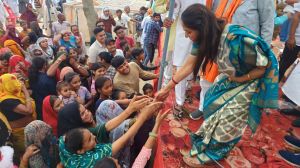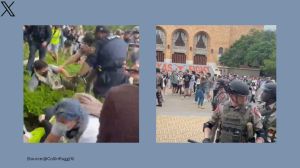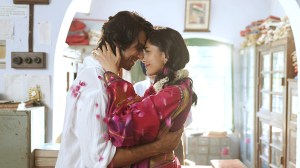- India
- International
UG Brahma: Poet by accident, Sahitya Akademi award by surprise
Brahma had played an important role in getting the Eighth Schedule status for the Bodo language.
For student leader turned politician Urkhaw Gwra Brahma, taking to writing poems was purely by accident. But on Friday, when his first and only collection of poems – Udangnifrai Gidingfinnanei (meaning ‘Return from Freedom’) – was selected for the Sahitya Akademi award in Bodo language, Brahma says it is a huge surprise.
“I am surprised, and also thrilled. I am also glad I have been elevated from a typical politician to a recognized poet,” says Brahma. An independent Rajya Sabha member from 2002 to 2008, Brahma had also played an important role in getting the Eighth Schedule status for the Bodo language, currently spoken by about 16 lakh people. He is also the twelfth recipient of the Sahitya Akademi award in Bodo language.
“I had taken to writing poems during a particular phase of my life when I had started suffering from depression arising out of severe political turmoil in the Bodoland districts. There was violence and mistrust all around, and, while some of us indulged in ethnic violence, some others even took to fratricidal killings,” Brahma, born 1963, said.
It was in fact Brajendra Kumar Brahma, then president of the Bodo Sahitya Sabha, who was also an uncle of Brahma, who introduced him to ‘Phitika’ – originally meaning the sweet taste of traditional rice-beer, here the taste of good poetry – a forum of poets in Kokrajhar. His uncle incidentally was one of the first recipient of the Tagore Award instituted by Sahitya Akademi in 2012.
“My uncle introduced me to Phitika, where the basic rule was that one has to compose poems and read or recite them in the fortnightly sittings. I do not remember exactly what poem I wrote first. I cannot trace it. But I soon found poetry a wonderful medium to vent my anger, frustration as well as dreams of hope,” Brahma said.

Brahma, a former president of the All Bodo Students’ Union (ABSU) incidentally had played a pivotal role in getting Bodo language included in the Eighth Schedule in 2002, with Sahitya Akademi introducing an award in this language from the next year. He has so far written 11 books, of which one is a collection of short stories and one of poems, the rest being essays on socio-political issues.
“My poems mostly touch issues arising out of violence, mistrust, moral degradation in society and as also plight of the common man faced with corruption and nepotism. Every person wants freedom from these evils. Yet, even when one achieves that goal, one finds nothing different to rejoice about,” says Brahma.
Every individual, Brahma says, has an urge to live like an emperor, free from all worries. “Even every mass movement, every struggle whether violent or non-violent, aims at attaining some kind of freedom from the prevailing situations. But do we really attain that after reaching the goal? Six decades after independence, millions still ask this question. People who have signed peace accords too have been asking the same question. I am asking such questions through poems,” a soft-spoken Brahma said.
“I may have been at the forefront of the Bodo movement for several years. But every death, every killing has left a deep scar in my heart. And, as a poet, I have found that people become stone-hearted even after death,” Brahma said, pointing to one particular poem. “In this poem I talk about a close friend who, after having been killed in senseless fratricidal violence, lies still on the ground, refusing to listen to even his wailing mother,” says the poet-by-accident.
Fifty-one year old Brahma, a leader of the Bodo People’s Progressive Front (BPPF), also heads the UN Brahma Academy that runs 45 Bodo-medium high schools across Assam. A founder of the UN Brahma Trust that had instituted the UN Brahma Soldier of Humanity national award, Brahma writes in three languages – Bodo, Assamese and English – and writes regularly in a couple of Assamese newspapers.
Apr 25: Latest News
- 017 hours ago
- 0216 hours ago
- 036 hours ago
- 0416 hours ago
- 057 hours ago











